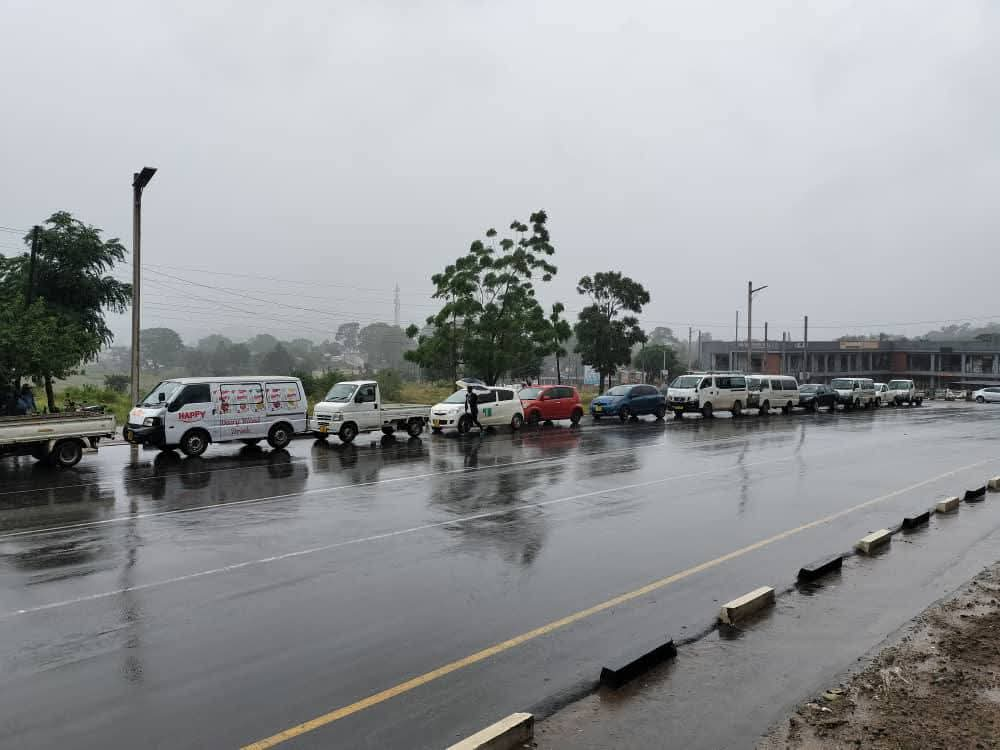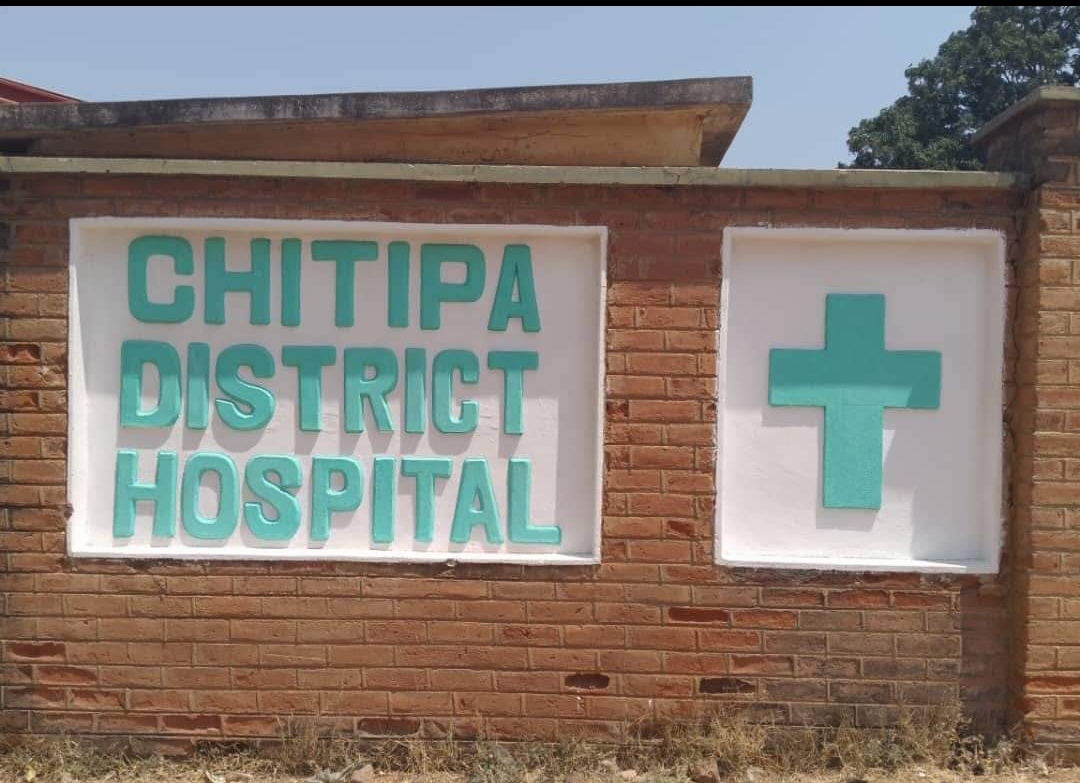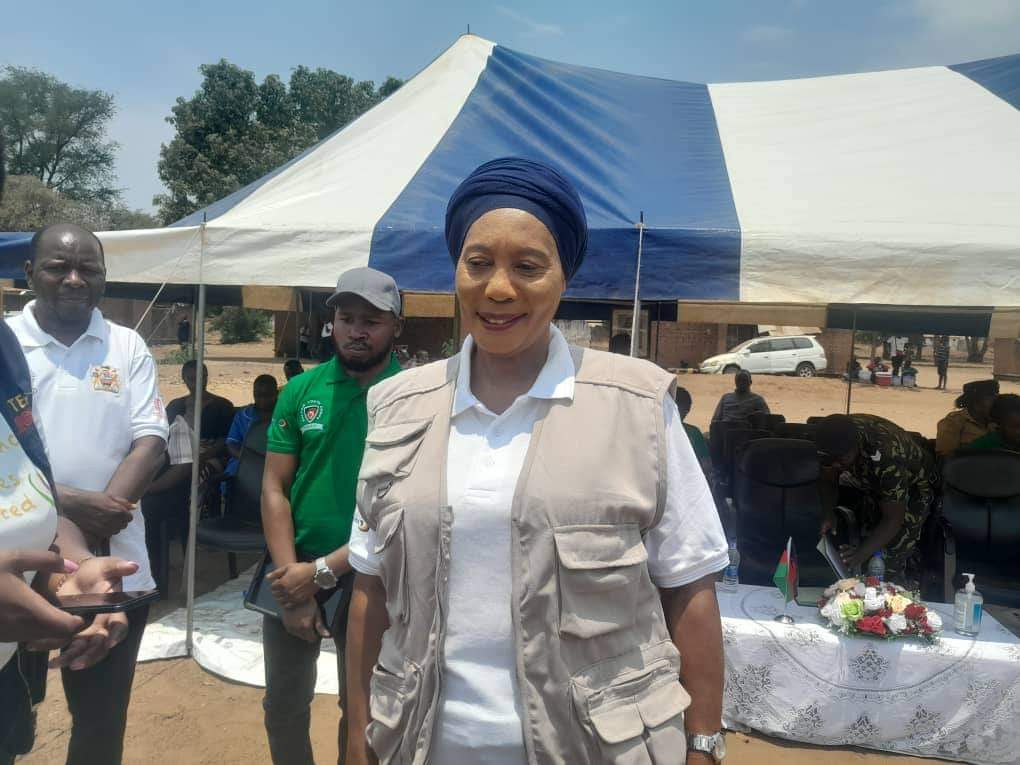By Burnett Munthali
A fuel shortage has once again gripped parts of Blantyre, with long queues of vehicles and motorcycles forming at filling stations in areas such as Ndirande, Soche, and Mount Pleasant. This sudden reappearance of fuel scarcity has brought frustration, disrupted business operations, and caused tension among motorists struggling to find petrol.
During a visit to several filling stations in the city, it was evident that the problem is widespread. In Ndirande and Soche, most fuel stations were completely dry, while a few others only had limited supplies. At Petroda in Mount Pleasant, one of the few stations that had petrol, the scene was chaotic. Vehicles and motorcycles were lined up in lengthy queues, stretching hundreds of meters, with anxious drivers waiting for hours just to fill up their tanks.
The shortage has not only affected private motorists but has also hit commercial transport operators hard. Motorcycle taxi operators, popularly known as Kabaza, voiced their frustration, citing significant losses due to the inability to find fuel. For these operators, the scarcity means fewer trips, fewer customers, and ultimately less income.
One Kabaza operator from Soche, visibly frustrated, shared his ordeal: “This is the third day I’ve failed to work properly. I spend more time in queues than on the road. This has really hurt my business, and I don’t know how I will feed my family if this continues.”
Another motorcyclist operating around Ndirande lamented the lack of information and proper planning from authorities. “It’s not just about finding fuel; it’s about the uncertainty. You go to one filling station, they say no fuel. You ride again to another, still no fuel. It’s wasting both time and the little petrol you have left.”
The situation is worsening as more people flock to the few fuel stations that still have supplies, resulting in traffic congestion and sometimes even heated arguments between motorists trying to get ahead in the line. The lack of security and coordination at some stations has led to disorderly conduct and confusion, further aggravating the crisis.
For Blantyre residents who rely on public transport, the impact is also being felt. Minibuses have scaled down their operations due to fuel unavailability, forcing commuters to wait longer and pay more for transport. Some passengers have reported walking long distances to get to work or school.
Businesses that depend on vehicle movement — such as delivery services, logistics firms, and small-scale traders — have also been hit. Many are unable to make timely deliveries or complete daily assignments, resulting in financial strain and loss of customer confidence.
The public is now demanding swift intervention from the government and responsible authorities. Many believe this crisis could have been avoided if fuel supply management had been handled better. There is growing concern that continued shortages could escalate into a broader economic problem, especially in a city like Blantyre where mobility is key to daily survival.
Calls are being made for the National Oil Company of Malawi (NOCMA) and the Malawi Energy Regulatory Authority (MERA) to provide clear communication on the cause of the shortage and outline immediate steps being taken to resolve it. Citizens are also urging the Ministry of Energy to ensure that supply chains are stabilized and that fuel distribution is improved across the country.
As the queues grow and frustrations mount, all eyes are now on government leadership to act with urgency and transparency. Blantyre cannot afford to be brought to a standstill — not again. The people are waiting, and the pressure is on.





